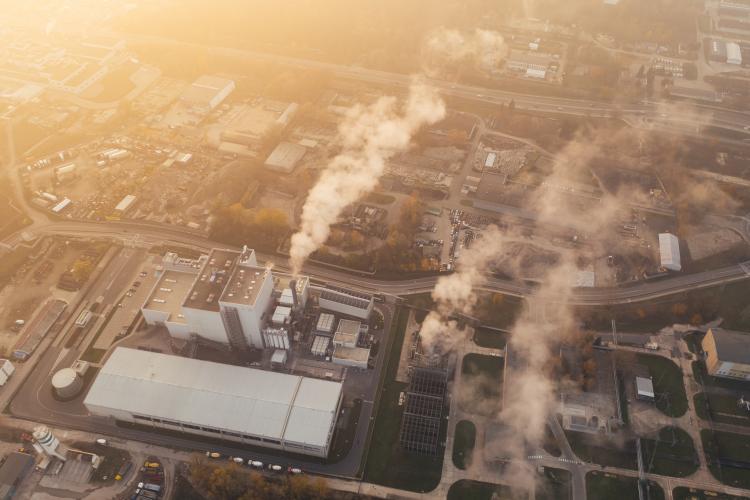
Sustainability in Indian companies: Indian firms are increasingly recognising the importance of sustainability. They have already taken concrete steps to reduce their environmental impact, improve social conditions, and strengthen governance practices. However, these efforts have not made a significant impact on the way they are doing business. This is evident in the analysis of data from 1,040 listed companies compiled by EY India.
The power sector, metals & mining, construction material, chemicals, and petroleum sector account for close to 90% of India’s greenhouse gas emissions. The power sector stands as the primary culprit in environmental damage, single-handedly responsible for nearly 40% of the emissions. The power industry leads also in other categories of environmental harm such as waste generation and water usage. Following closely behind are the metals & mining and capital goods industries.
READ | India’s ageing population presents challenges, opportunities
A report card of sustainability in Indian companies
In the financial year 2022-23, companies in these sectors emitted 1.26 billion metric tonnes of carbon dioxide equivalent (MTCO2e) under Scope 1 emissions and 0.14 billion MTCO2e under Scope 2 emissions. Scope 1 emissions originate directly from sources owned by the companies, while indirect emissions such as the purchase of electricity from external sources fall under Scope 2.
Another industry contributing significantly to environmental harm is FMCG as it plays a substantial role in categories like waste generation, water withdrawal, and water discharge. This is unsurprising, given that the fast-moving consumer goods sector has faced criticism for its role in expanding plastic waste.
In the waste generation category, just five firms generated a staggering 363.2 million metric tonnes of waste, with 4.1 million metric tonnes being plastic waste. Apart from FMCG, other culprits include power, metals & mining, capital goods, and chemicals. These five sectors collectively contributed to 95.1% of the total waste generated.
Amid these worrying statistics, there is some hope on the horizon. Businesses are taking steps to become more sustainable and environmentally responsible. Encouragingly, 71% of companies have initiated projects aimed at reducing greenhouse gas emissions and fostering sustainability. Moreover, the healthcare, FMCG, and utilities sectors lead the charge by consuming over 70% of their energy from renewable sources.
While the transition to green energy may not be swift, there is a growing likelihood that more companies will adopt it in the future. FMCG deserves acknowledgment for leading in fuel and energy consumption from renewable sources and ranking second in waste recovered through recycling, just behind metals & mining. Additionally, approximately 275 million metric tonnes of waste were reused, recycled, or recovered.
As India seeks to become a frontrunner in the fight against climate change and has set an ambitious target of achieving net-zero by 2070, businesses must seek effective ways to achieve sustainability rather than engaging in greenwashing. Greenwashing, a marketing gimmick that involves companies focusing more on portraying themselves as environmentally friendly than on minimising their environmental impact, remains a concern, particularly in the FMCG sector.
Another critical issue is funding, as achieving net-zero status requires significant investment. Therefore, the government and policymakers should look to corporations for enhanced CSR funding. Companies must also undertake various initiatives, including investments in renewable energy, green jobs training, energy efficiency improvements, and a shift toward a low-carbon growth trajectory.
According to a study by Oxford Economics and SAP, 62% of Indian companies believe that sustainability and profitability can coexist. Consequently, many firms are adopting greener practices. The rising awareness among customers and investors towards sustainability has made it increasingly difficult for companies to ignore consumer preferences.
Deloitte’s 2023 CXO Sustainability Report revealed that climate change is among the top three priorities for the top executives in India. Moreover, 81% of Indian CXOs stated that they have increased sustainability investments from the previous year, with 27% reporting a significant increase. Nevertheless, India Inc has repeatedly highlighted challenges such as an insufficient supply of sustainable or low-emissions inputs, a lack of talent and expertise, high costs, and difficulty measuring environmental impact as the top barriers to taking more climate action.
India is about to witness pockets of excellence in climate action and has made remarkable progress thus far. The country is the third-largest producer of renewables, with 42% of its power sourced from clean energy. With India’s enviable economic growth, rising to become the fifth-largest economy globally, all eyes are now on Indian firms to set a precedent for other global brands to lead in sustainable development.

